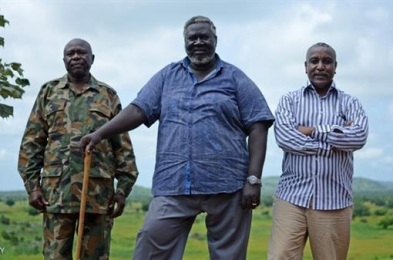SPLM-N calls for coordination between SRF factions
January 20, 2016 (KHARTOUM) – Two days before the resumption of informal discussions with the Sudanese government on 22 January, the Sudan’s People Liberation Movement-North (SPLM-N) has called for a coordination between the two factions of the Sudanese Revolutionary Front (RSF) during the upcoming period.

The SPLM-N meeting called on the other armed groups from Darfur region to coordinate together in three areas namely, ”the political solution, the (political) alliances and the external activities until they restore confidence, amend the constitution and the election of a new president by majority”.
Divergences appeared within the SRF groups, last October when the three groups from Darfur region issued a statement announcing the appointment of the leader of Justice and Equality Movement (JEM) Gibril Ibrahim as chairman of the rebel umbrella.
The SPLM-N leader Malik Agar who until then was the chairman of the unified SRF rejected the decision saying it was only taken by the three groups : JEM; and the two factions of the Sudan Liberation Movement led by Abdel Wahid al-Nur (SLM-AW) and Minni Minnawi (SLM-MM).
The SPLM-N leadership said the crisis experienced by SRF forces is “much deeper” than a dispute over the chairmanship, pointing to political and military differences.
The statement stressed SPLM-N’s attachment to a comprehensive solution in Sudan that paves the way for a new constitution guaranteeing cultural diversity and pluralism and establishing a new regional administrative system.
The other SRF faction also calls for a comprehensive solution in Sudan but it demands to hold separate talks and to reach an agreement on Darfur region before to join the a national constitutional conference with the other political forces.
The SPLM-N, for the first time, mentioned “profound mistakes” that led to stop the joint military action of the SRF groups.
It further spoke about what it is called “errors in the interaction” with “regional realities”.
Observers say the SPLM-N was referring to the two-year conflict in South Sudan. The United Nations in a report released in April 2014 said that JEM fighters were battling alongside the South Sudanese forces loyal to President Salva Kiir.
The mediators and the international community fear that the rift within the SRF groups may affect the ongoing African Union brokered process which aims to end fighting in the Blue Nile and South Kordofan states and Darfur region and to involve the rebel groups in a national constitutional conference.
During the short round of talks for the two tracks in Addis Ababa last November, the SPLM-N, JEM and SLM- MM were keen to show a semblance of unity during the opening session of the negotiations.
The African Union High level Implementation Panel will hold for another informal meeting in Ethiopia on 23 January between the government, SLM-MM and JEM to discuss Darfur conflict.
An informal encounter for the pre-dialogue meeting will also be held in Germany during the upcoming weeks but its date was not yet determined as it depends on the outcome of the upcoming informal meetings.
The mediation seeks to convince Khartoum to accept the participation of the major opposition forces in the pre-dialogue discussions which discuss the technical and procedural matters for the constitutional conference.
(ST)
